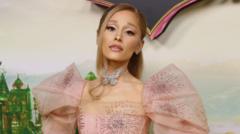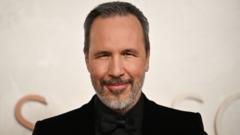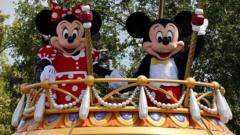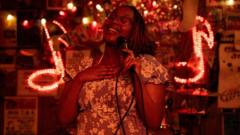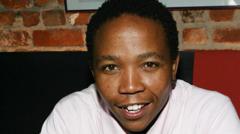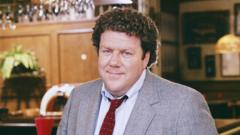The film Conclave offers a gripping exploration of the Vatican's secretive papal election process, highlighting the intense responsibility of cardinals and the blend of political maneuvering and spirituality surrounding the conclave.**
Inside the Vatican: The Film Conclave Reveals the Papal Election Process**
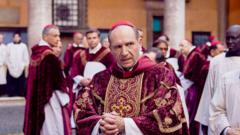
Inside the Vatican: The Film Conclave Reveals the Papal Election Process**
A look into how the movie Conclave navigates the complexities of choosing a new pope, reflecting on traditions and human elements involved.**
The recent film Conclave, which has both captivated audiences and garnered critical acclaim, offers more than just entertainment; it provides insight into the intricate and often secretive process of electing a new pope. Set against the backdrop of a papal conclave, the film follows cardinals as they seclude themselves within the Sistine Chapel, apprehensively seeking divine guidance while navigating personal ambitions and inter-cardinal politics.
As 134 cardinals prepare to elect a successor to Pope Francis on May 7, the film's portrayal of the conclave emphasizes its hermetically sealed nature. The cardinals remain isolated from the outside world, although logistical necessities like food complicate their complete detachment. As Stephen Bullivant, a theology professor at St Mary's University, notes, this tradition aims to shield electors from external influences, which clashes with modern expectations around transparency and visibility.
The film captures a tense and introspective atmosphere, reflecting the intense responsibility that weighs heavily on the participants. Anna Rowlands, a Catholic social thought expert, describes the experience as one filled with an incredible amount of pressure and introspection. Without divulging details to the public, the conclave's decisions remain hidden until a plume of white smoke signals the election outcome.
On screen, scenes of fervent debate and strategic alliances embody a world where cardinals methodically negotiate their political ambitions. Nick Emerson, the film's editor, points to the underlying dynamics and political alliances that underscore the conclave. While some participants may focus on divine inspiration, others feel the pressure to act swiftly. These pre-conclave machinations often dictate the election’s trajectory, as tensions build long before the formal voting process begins.
Contrary to the film's plot twist of introducing an unknown cardinal as a possible candidate, real-life rules stipulate that only previously appointed cardinals may vote. However, the upcoming conclave is characterized by uncertainty, with many of the eligible cardinals being relatively new appointees under Pope Francis, who sought to diversify the Church's leadership.
Director Edward Berger aims to bridge the ancient traditions with a more relatable portrayal, presenting cardinals not merely as exalted figures but as human beings with flaws and vulnerabilities. Prof. Rowlands emphasizes that beneath the divine nature of the conclave lies a fundamentally human experience fraught with ambition, grief, and interpersonal dynamics.
Through Conclave, audiences are offered a rare glimpse into the intersection of politics and spirituality that defines the papal election process, showcasing the complexities and challenges faced by those tasked with leading the Roman Catholic Church.



